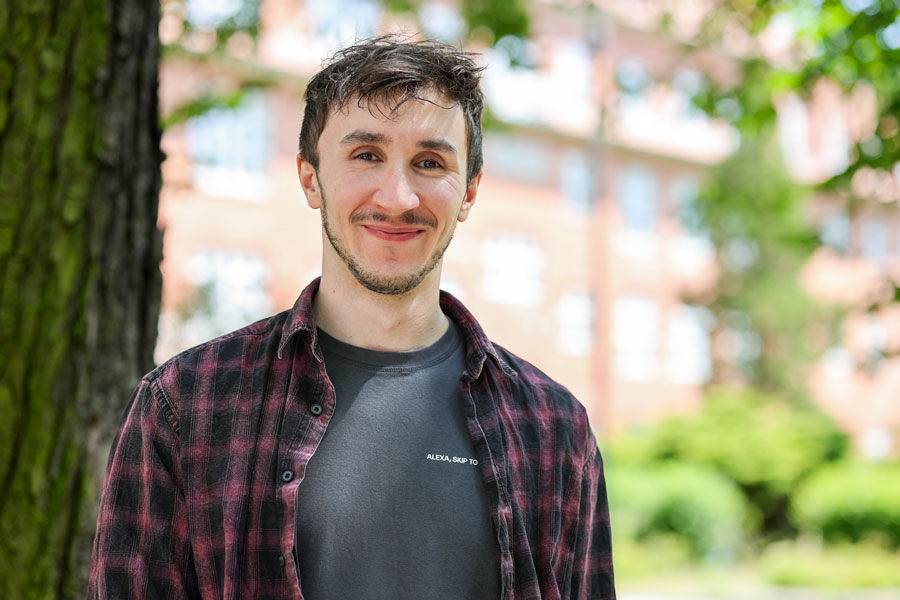Industrial PhD – Science in Practice
Łukasz Duda, who began his scientific journey at Łukasiewicz – PORT already during his master’s studies, has just defended his Industrial PhD at the University of Wrocław. The project was carried out in collaboration with our institute. It’s a major achievement and – as Dr. Duda himself puts it – the beginning of a new chapter.
At the intersection of chemistry, materials engineering, and photonics

Already in his master’s thesis, Dr. Duda studied liquid crystal mixtures, focusing on the analysis of their optical properties. These materials have applications in photonics, optical sensors, and modern display technologies. – I conducted the research for my master’s thesis at Łukasiewicz – PORT and defended it at Wrocław University of Science and Technology. I then carried out my Industrial PhD project at our institute and the Faculty of Chemistry at the University of Wrocław – he explains. His PhD was supervised by Dr. hab. Małgorzata Guzik, with Dr. Maciej Czajkowski acting as co-supervisor. At Łukasiewicz – PORT, Dr. Duda worked as part of Dr. hab. Joanna Cybińska’s team and in the Clean Room Laboratory, where he is currently employed.
His scientific experience – including an international research internship in Lyon with Prof. Joël Bellessa – highlights the importance of flexibility and openness to interdisciplinary science.
Luminescent dyes and functional microstructures
During his PhD, Dr. Duda focused on organic luminescent dyes – materials that emit light when excited, e.g. by UV radiation. He analyzed their properties in various matrices, such as sol-gel materials, polymers, and liquid crystals, aiming to apply them in photonics, especially as microstructures for light amplification. – Now we’re taking it a step further – we’re working on integrating multiple components on a single substrate and functionalizing the surfaces of microstructures for the detection of selected bioanalytes – says the researcher. One particularly promising result – although with a different potential use – involves polyelectrolyte layers containing selected dyes that change color depending on ambient humidity. The team has already submitted a patent application for this solution.
Interdisciplinary collaboration and practical science
– The PhD and my work at Łukasiewicz – PORT allowed me to participate in many interdisciplinary projects, which helped me understand how crucial collaboration between scientists of different specialties is – chemists, physicists, and more – says Dr. Duda, who also values the practical nature of the Industrial PhD. – In this kind of doctorate, you don’t just think about the research – you always have in the back of your mind the question: What can this be used for? What is the application? – The main goal of Dr. Duda’s work is the development of photonic components – miniature elements used for transmitting, processing, and amplifying light.
Shortly after defending his PhD, Łukasz Duda swapped his lab coat for hiking boots and set off to celebrate his achievement – by climbing the peaks of the Polish mountains. Now holding a PhD and equipped with rich interdisciplinary experience, he plans to continue his scientific career and research development at Łukasiewicz – PORT.

